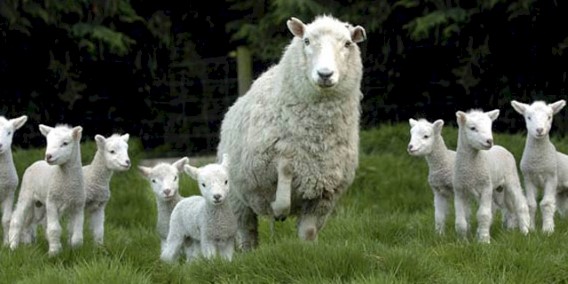Perendale sheep, a breed developed in New Zealand during the 1950s at Massey University, emerged as a response to the specific needs of hill country farmers in developing regions. Since its inception, the Perendale has remained a cornerstone of New Zealand's agricultural landscape, renowned for its adaptability, productivity, and resilience in diverse environmental conditions.
The Perendale breed was meticulously crafted through a strategic breeding program that involved the crossing of two distinct parent breeds: the Cheviot and Romney. This deliberate blending aimed to combine the desirable traits of both ancestral breeds, resulting in a dual-purpose sheep ideally suited for the rugged terrain and variable climate of New Zealand's hill country regions.
One of the defining characteristics of Perendale sheep is their versatile wool, which typically measures between 28 to 32 microns in fiber diameter and boasts an impressive staple length of 125 millimeters (5 inches). This quality wool, prized for its durability and versatility, serves as a valuable asset for farmers engaged in both traditional and modern fiber production industries.
Beyond their wool attributes, Perendale sheep are celebrated for their exceptional fertility and prolificacy, making them highly sought after for prime lamb production. When crossed with Merino sheep, Perendale ewes demonstrate remarkable potential as prime lamb dams, contributing to the economic viability and productivity of sheep farming operations.
One of the key advantages of Perendale sheep is their inherent hardiness and adaptability to challenging environmental conditions, particularly in colder, high rainfall areas. These sheep are well-equipped to thrive in rugged landscapes, showcasing resilience and robustness that enable them to withstand adverse weather conditions and thrive in extensive grazing systems.
Furthermore, Perendale sheep are renowned for their ease of management and low maintenance requirements. Ewes within the breed exhibit excellent maternal instincts, facilitating trouble-free lambing and ensuring the well-being of their offspring. These attributes contribute to the overall efficiency and sustainability of Perendale sheep farming operations, making them a preferred choice among farmers seeking reliable and productive livestock breeds.
